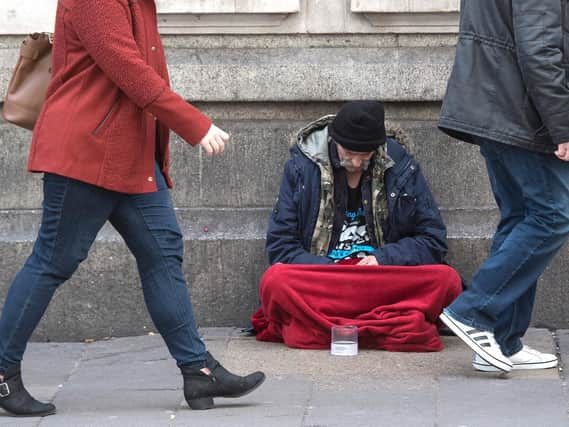Sixty percent of homeless households in Northampton did not get temporary accommodation last year


Sixty percent of homeless households in Northampton that needed help at the end of last year could not find new accommodation, new figures have revealed.
The statistics come in the week that the borough council launched a new homeless strategy for the town.
Advertisement
Hide AdAdvertisement
Hide AdThe latest figures come from the Ministry of Housing, Communities and Local Government.
Local housing authorities have a legal duty to provide relief to homeless households, meaning they must try to help them secure accommodation that will last them at least six months.
This duty expires automatically after a period of 56 days, however – even if the council has been unable to find them suitable housing.
Ministry of Housing, Communities and Local Government figures show this relief duty ended for 170 eligible households in Northampton between October and December last year.
Advertisement
Hide AdAdvertisement
Hide AdOf these, 102 (60%) had not been helped to secure a home, though this is an improvement on the previous three months when 64% remained homeless.
The relief duty may also expire if a household refuses a suitable offer of accommodation, makes themselves intentionally homeless, or otherwise refuses to cooperate.
One-fifth of households facing homelessness in England lost their last settled home due to a private tenancy ending, according to Shelter.
Chief executive of Shelter, Polly Neate said: “Even before the pandemic councils were barely able to help half the homeless people turning to them.
Advertisement
Hide AdAdvertisement
Hide Ad“The system will buckle if more families become homeless once the evictions ban is lifted in a few short weeks.
“If the Government lifts the eviction ban without putting in protections for renters, it will unleash a wave of homelessness that will see councils drown and families needlessly suffer.”
In Northampton, 19% of the households who were eligible for relief duty lost their last home because a private tenancy ended – the second most common cause of homelessness during this period, with family or friends no longer able to help the most often-cited.
The borough council's new strategy includes four strategic objectives have been identified - creating effective and collaborative partnerships; preventing homelessness through early and targeted intervention; reducing the number of households in temporary accommodation and ensuring a sufficient supply of suitable housing for homeless households; and reducing rough sleeping and enabling rough sleepers to thrive.
Advertisement
Hide AdAdvertisement
Hide AdThe Conservative cabinet member for housing, Councillor Stephen Hibbert, said at the virtual meeting earlier this month: “This strategy sets out how we’ll seek to achieve these objectives.
“We’re already working with officers from the other councils to develop a unitary strategy, and I hope this one will feed into that..
“All of this was prepared before COVID-19 and the recent provision of hotel accommodation, but much has been learned from that process.
“What’s critical with this is that we’ve been able to bring together all the participants in the town and work together. All those resources together hopefully this will get us the right result.”